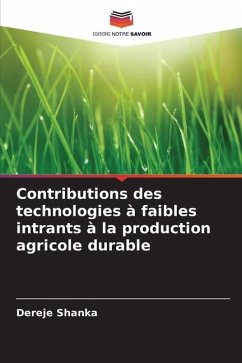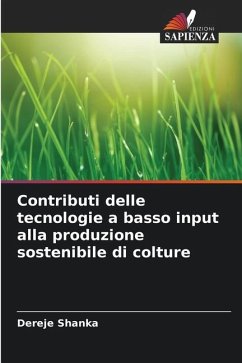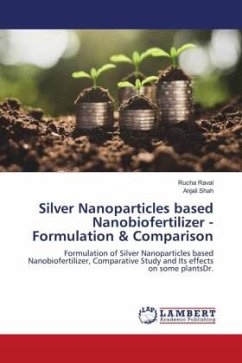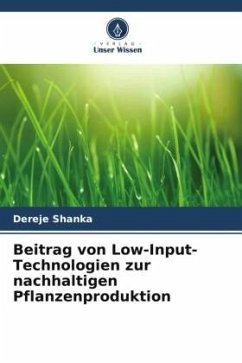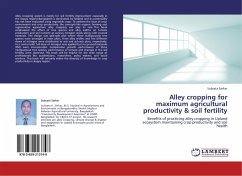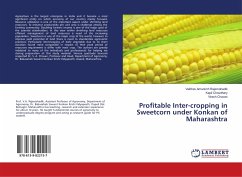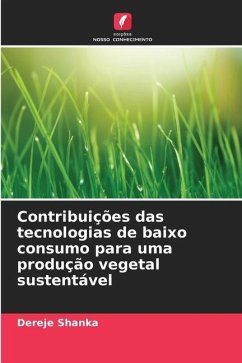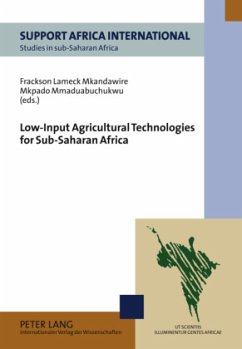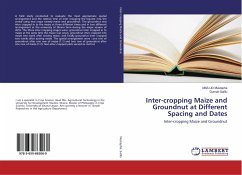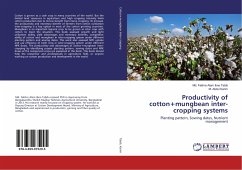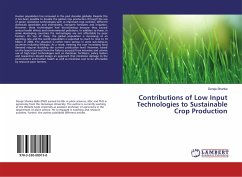
Contributions of Low Input Technologies to Sustainable Crop Production
Versandkostenfrei!
Versandfertig in 6-10 Tagen
24,99 €
inkl. MwSt.

PAYBACK Punkte
12 °P sammeln!
Human population has increased in the past decades globally. Despite this it has been possible to double the global crop production through the use of green revolution technologies such as improved crop varieties, different chemicals (pesticides and insecticides), inorganic fertilizers and irrigation. However, these technologies had shortcomings because they caused serious health effects and environmental pollutions. In addition to these, in some developing countries the technologies are not affordable by poor farmers. On top of these, the global population is increasing at an alarming rate an...
Human population has increased in the past decades globally. Despite this it has been possible to double the global crop production through the use of green revolution technologies such as improved crop varieties, different chemicals (pesticides and insecticides), inorganic fertilizers and irrigation. However, these technologies had shortcomings because they caused serious health effects and environmental pollutions. In addition to these, in some developing countries the technologies are not affordable by poor farmers. On top of these, the global population is increasing at an alarming rate and the world population is expected to reach to nine to 10 billion in 2050. The situation is rather more serious in some sub-Saharan countries including Ethiopia. As a result, meeting the ever increasing food demand requires doubling the current production level. However, based on the lessons learned from the failures aroused from intensive and unwise use of high input technologies such as chemicals, fertilizers, policy makers and researchers should design an approach that minimizes damage to the environment and human health as well as minimizes cost to be affordable by resource poor farmers.



